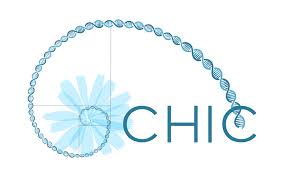27 February 2018
Launch of the CHIC project: Chicory as a multipurpose crop for dietary fibre and medicinal terpenes
Last week the launch of the CHIC project was announced. The CHIC project is funded by the European Union’s Horizon 2020 research and innovation program under grant agreement No 760891. The research will focus on chicory as a multipurpose crop for dietary fibre and medicinal terpenes. KeyGene, one of the 17 members of the consortium, is looking forward working on this challenging topic.
Details of the project
 • CHIC is a research and innovation project supported through the EU Horizon 2020 funding program
• CHIC is a research and innovation project supported through the EU Horizon 2020 funding program
• The €7.3 million project supports the establishment of a responsible innovation pathway for the development and application of New Plant Breeding Techniques (NPBTs) for chicory as a multipurpose crop for the production of high value consumer products, in line with societal needs and concerns.
• The consortium includes SMEs, an industrial partner, non-profit organizations and research institutes from 11 European countries and one from New Zealand.
Root chicory (Cichorium intybus L.) is an under-utilized crop. It is currently used for the commercial production of inulin, which is added to many food products as a dietary fibre and sweetener.
The CHIC project aims to develop chicory varieties that can be used to produce dietary fibre with enhanced prebiotic effects to promote gut health. At the same time, given its biosynthetic capacity,
high yields and low agronomic requirements, chicory has significant potential as a versatile production host in molecular farming for the production of many additional health-related products
with benefits for consumers. CHIC also aims to harness this potential to cultivate chicory for the extraction of other types of health-related compounds (terpenes) as potential lead molecules for
drug development.
 To achieve this, new chicory varieties must be developed. However, chicory breeding is currently exceptionally time-consuming. Since it is an obligatory outcrossing species, no true varieties can be obtained, and germplasm is maintained by in vitro propagation. Therefore, chicory is a highly relevant case where new plant breeding technologies (considered in the NPBT set)1 can make a real difference. Some EU member states and stakeholder groups are increasingly concerned about the impact of these technologies on the safety of its daily food and the integrity of the environment. Moreover, a clear EU regulation or policy on new plant breeding technologies is still pending. This has led to a situation where the industry is hesitant to adopt novel developments, and potentially beneficial innovations do not reach consumers.
To achieve this, new chicory varieties must be developed. However, chicory breeding is currently exceptionally time-consuming. Since it is an obligatory outcrossing species, no true varieties can be obtained, and germplasm is maintained by in vitro propagation. Therefore, chicory is a highly relevant case where new plant breeding technologies (considered in the NPBT set)1 can make a real difference. Some EU member states and stakeholder groups are increasingly concerned about the impact of these technologies on the safety of its daily food and the integrity of the environment. Moreover, a clear EU regulation or policy on new plant breeding technologies is still pending. This has led to a situation where the industry is hesitant to adopt novel developments, and potentially beneficial innovations do not reach consumers.
CHIC explores the interactions between technological potential and societal acceptance of modern plant breeding
By developing and implementing a set of new plant breeding technologies, CHIC will adapt the biosynthesis and architecture of root chicory. This will strengthen chicory as a production system for high-quality dietary fibres and establish it as source of bioactive terpenes.
The consortium will evaluate the technological performance of these new plant breeding technologies, as well as the safety, environmental, regulatory, socio-economic and broader societal issues associated with them. CHIC will strive to ensure responsible innovation and to raise public awareness by involving stakeholders and considering their needs and concerns in all phases of the project.
Press release – Launch of the CHIC project Chicory as a multipurpose crop for dietary
Participants
The CHIC consortium consists of 17 participants from 11 European countries and one international participant:
Research institutes
Wageningen University & Research (Netherlands) – Project Coordinator
Université des Sciences et Technologies de Lille (France)
Leibniz – Institut fur Pflanzenbiochemie (Germany)
The New Zealand Institute for Plant and Food Research Limited (New Zealand)
Fondazione Edmund Mach (Italy)
Teknologian tutkimuskeskus VTT Oy (Finland)
Institut za Biološka istraživanja “Siniša Stanković (Serbia)
Julius Kühn-Institut Bundesforschungsinstitut für Kulturpflanzen (Germany)
Graz University of Technology (Austria)
Joanneum Research Forschungsgesellschaft mbH (Austria)
SMEs
iBET – Instituto de Biologia Experimental e Tecnológica (Portugal)
KeyGene (Netherlands)
IDConsortium (Spain)
Large industry
Sensus b.v. (Netherlands)
Other private and public non-profit organizations
Fundacja: Art & Science Synergy Foundation (Poland)
European Plant Science Organization (Belgium)
